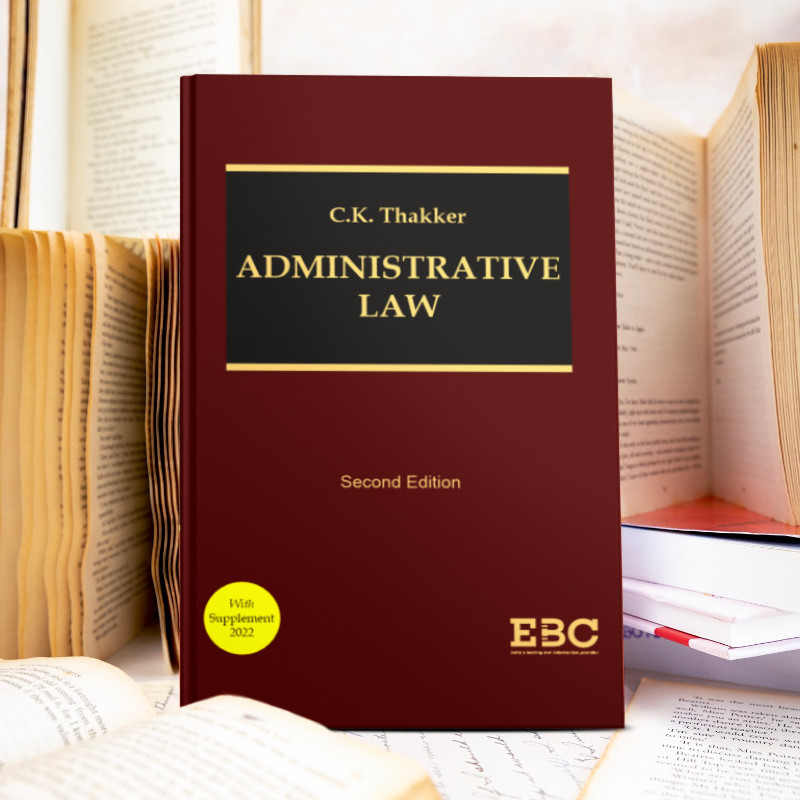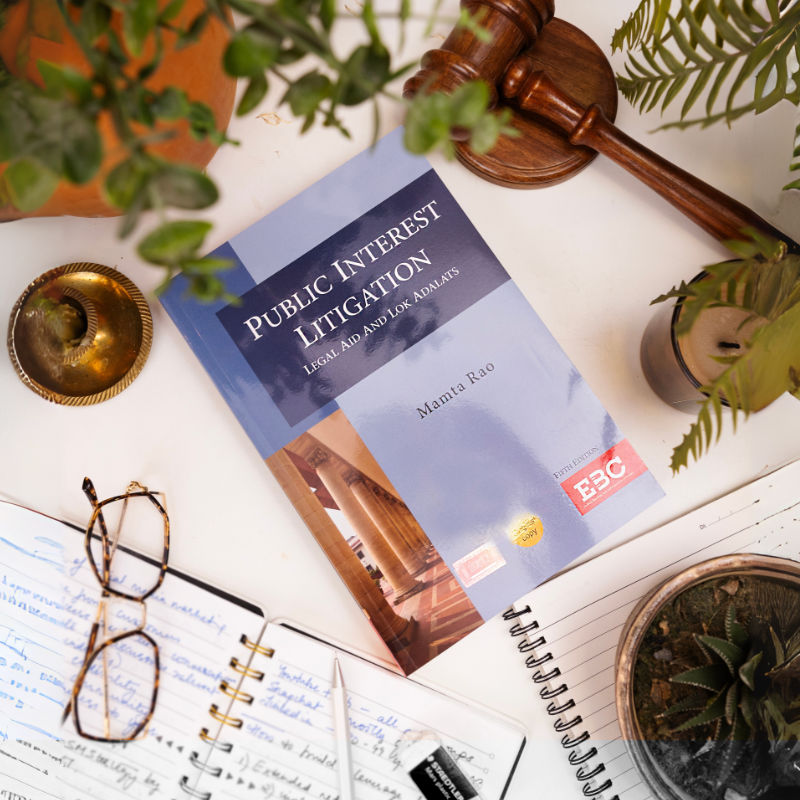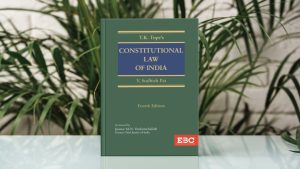
Administrative Law sits at the heart of how government power is exercised and controlled. Whether you’re a student, civil service aspirant, or legal professional, understanding its principles is essential for navigating modern governance. This blog highlights some of the most insightful books that unravel the complexities of administrative law and sharpen your grasp of its evolving landscape.
1. Administrative Law
by C K Thakker

Administrative Law by C.K. Thakker offers a correct, concise, and comprehensive analysis of the provisions of Administrative Law, along with a critical exposition of its core principles. The latest edition has been thoroughly updated with new materials, ensuring relevance to current legal developments. Notably, the doctrine of judicial review is discussed in detail, while newer doctrines like estoppel, proportionality, and legitimate expectation are also thoughtfully examined. In addition, the book highlights key judicial remedies, including prerogative writs and constitutional remedies, and introduces topics such as protection of public property and sting operations. Importantly, each subject is supported with extensive case law from Indian courts, complemented by relevant English and American decisions. Know more…

2. Administrative Law
by I.P. Massey
This book offers a detailed and critical analysis of administrative law, covering recent developments and major judicial pronouncements. It examines the relationship between the executive and citizens, with special emphasis on procedural safeguards and remedial measures. The 10th edition is thoroughly revised, featuring updated case law and contemporary legal trends. Written in clear language, it remains accessible to students, professionals, and informed readers alike. Key features include case discussions, a subject index, and suggested readings for deeper academic engagement. Know more…
3. Lectures on Administrative Law
by C K Takwani

Lectures on Administrative Law by Justice C.K. Thakker (Takwani) is a widely respected text among law students and legal professionals. The book explains core principles of administrative law through judicial developments, with detailed discussions on natural justice, judicial review, and remedies. The eighth edition includes updated case law up to 2023, including key judgments like Rajeev Suri v. DDA and Brahmputra Metallics. It introduces new topics, a curated list of suggested readings, and reorganizes doctrines for improved clarity. This work remains essential for students, advocates, judges, researchers, and public administrators. Know more…

4. A S Misra’s Law of Bias and Mala Fides
by R. Prakash
This book explores the law on bias and malafides in judicial, administrative, and employment contexts. It explains key legal principles with real case contexts for better clarity. Both Indian and accepted foreign rulings are included. Remedies for aggrieved individuals are also discussed. Divided into 22 chapters, the book is clear, accessible, and engaging even for non-lawyers. The law in this book is explained through clear propositions and contextual case settings for better understanding. Indian case law is comprehensively discussed, supplemented by relevant English and foreign judgments accepted by Indian courts. Know more…
5. Public Interest Litigation Legal Aid and Lok Adalats
by Mamta Rao

Public Interest Litigation by Dr. Mamta Rao is a widely respected text among both students and practitioners. It explores the evolution of PIL, balancing the judiciary’s support for access to justice with concerns about its misuse. The book also covers the Legal Services Authorities Act, legal aid, and Lok Adalats. This updated edition includes the latest judicial developments and clearly explains key concepts and procedures. With detailed chapters and practical formats, it is an essential guide to the dynamics of PIL in India. Know more…
















